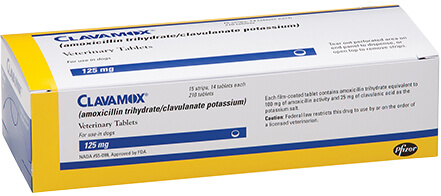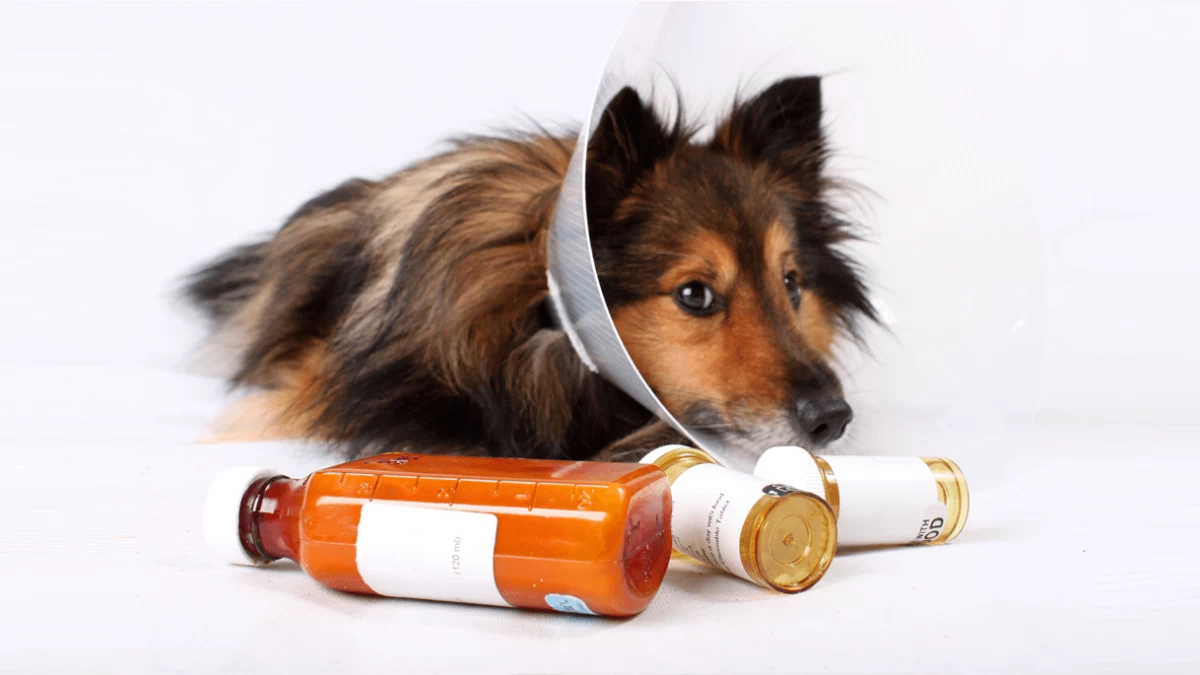Clavamox for Dogs - Dosage & Side Effects
25.04.2021.
Most owners decide to look for more information about Clavamox only when their vet prescribes their dog with this medication. Hearing a bunch of information at the vet’s office can be a bit overwhelming, and remembering it all is nearly impossible. Luckily, you can read all you need to know about Clavamox for dogs here.
What is Clavamox?
Clavamox is a broad-spectrum antibiotic that is prescribed for treating a whole lot of bacterial infections. Its scientific “name” is amoxicillin trihydrate/clavulanate potassium, which is not easy to say. “Clavamox” is a brand name, and the primary goal of this medication is treating soft tissue and periodontal infections. It is often prescribed “off-label” for urinary tract infections.
Off-label use of medication is not uncommon in veterinary medicine. However, it is crucial you stick to the vet’s instruction regarding off-label use of any medication. Clavamox for dogs is a synthetic penicillin-type antibiotic. It has added clavulanic acid to protect the active bacteria-killing ingredient before it gets destroyed by enzymes in the dog’s body.
Vets often use human medication for dogs or cats, but Clavamox is not one of those drugs. Clavamox was specifically developed for use on dogs and cats. This drug is effective against some of the worst types of bacteria, like Streptococcus, E. coli, and Staphylococcus. This is not a drug that should be used for viral or fungal infections.
Is Clavamox safe for dogs?
Clavamox for dogs is considered a safe drug. However, there are some drug interactions and precautions connected to it. Some blood-thinners and inflammation, and pain medicine might interfere with it. That is not the whole list of drug interactions. Make sure you talk to your vet about any medications your dog might be taking before taking Clavamox.

How is Clavamox administered?
Clavamox for dogs comes in two forms - tablets and liquid suspension. It is very effective, and its effects should be noticed 1 - 2 hours after administration. Unlike many other drugs, Clavamox for dogs should be given with food. You must stick to the entire duration of the prescribed treatment because your dog might seem better, but there are still bacteria surviving in their body.
Are there any side effects of Clavamox?
Most drugs have potential side effects, and Clavamox for dogs is no different. The bigger potential issue is allergic reactions. Dogs that are allergic to penicillin should not take this drug. If you notice your dog has an allergic reaction, you should immediately stop giving Clavamox to your dog. Call your vet and tell them your dog is experiencing an allergic reaction. The vet will let you know what the safe alternative medication is. Here are some of the most common signs of an allergic reaction;
It is crucial to differentiate allergies and common side effects. For example, vomiting might fall in both categories, so you should keep an eye on your dog and make sure there aren’t any other signs of allergies if your dog throws up. Some of the most common Clavamox for dogs side effects are;
- Diarrhea
- Vomiting
- Appetite loss
- Increased or decreased heart rate and breathing
Clavamox dosage for dogs
The exact dosage will be prescribed by your vet, and it would be best to stick to those instructions, no matter what the packaging might say. You should never give your dog a double dosage if you missed one; you should give your dog the dosage as soon as possible and adapt the schedule. This medication is usually given once every 12 hours. The usual Clavamox dosage for dogs is 6.25 mg per pound of body weight for tablets and 1mL per 10 pounds of body weight for liquid suspension. Both types are given twice a day.
Can dogs get overdosed on Clavamox?
Unfortunately, an overdose is possible. However, it should not happen if you are being careful and administering the medication as your vet instructed. If you notice overdose symptoms in your dog, you should call your vet immediately. If they cannot respond, you can contact Animal Poison Control Helpline (855) 764 - 7661. Keep in mind that APCH will charge you for taking your call.
World Dog Finder team







Share